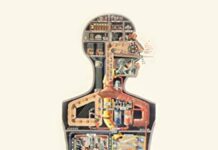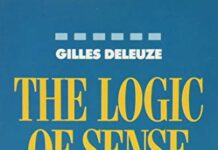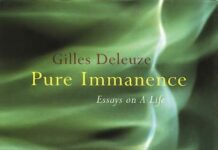
Ebook Info
- Published: 1996
- Number of pages: 256 pages
- Format: PDF
- File Size: 9.86 MB
- Authors: Gilles Deleuze
Description
Called by many France’s foremost philosopher, Gilles Deleuze is one of the leading thinkers in the Western World. His acclaimed works and celebrated collaborations with Félix Guattari have established him as a seminal figure in the fields of literary criticism and philosophy. The long-awaited publication of What Is Philosophy? in English marks the culmination of Deleuze’s career.Deleuze and Guattari differentiate between philosophy, science, and the arts, seeing as means of confronting chaos, and challenge the common view that philosophy is an extension of logic. The authors also discuss the similarities and distinctions between creative and philosophical writing. Fresh anecdotes from the history of philosophy illuminate the book, along with engaging discussions of composers, painters, writers, and architects.A milestone in Deleuze’s collaboration with Guattari, What Is Philosophy? brings a new perspective to Deleuze’s studies of cinema, painting, and music, while setting a brilliant capstone upon his work.
User’s Reviews
Editorial Reviews: Review A pivotal work. ― Times Literary SupplementMultiple beings, deterritorialized Earth, chaotic brains, artistic sensations: with these ideas, Deleuze and Guattari reach out to future “friends” of the concept, tired of worn-out philosophical gestures or conceptual moves, offering them a sense and a taste of what it means to try out new concepts and set things again in motion. — John Rajchman ― ArtForum InternationalA pleasure to read, this is a rigorous structural reflection of the philosophical concept and a genuine contribution to philosophy. Highly recommended. ― Choice[An] important, highly original challenging book….As a result, the success of Deleuze’s argument that we are Leibnizan is, in turn, compelling evidence for Foucault’s suggestion that our century is Deleuzian. Because the action indeed takes place inside, readers of this journal should not overlook this evidence. ― Journal of Aesthetics and Art Criticism From the Back Cover Deleuze and Guattari differentiate between philosophy, science, and the arts–seeing each as a means of confronting chaos–and challenge the common view that philosophy is an extension of logic. The authors also discuss the similarities and distinctions between creative and philosophical writing. Fresh anecdotes from the history of philosophy illuminate this book, along with engaging discussions of composers, painters, writers, and architects. About the Author Gilles Deleuze was Professor of Philosophy at the University of Paris VIII. He died in November 1995. Among his many works are The Logic of Sense, Difference and Repetition, and Nietzche and Philosophy, all published by Columbia University Press.Félix Guattari, a practicing psychoanalyst in Paris until his death in 1992, collaborated with Deleuze on four books, including Anti-Oedipus and A Thousand Plateaus. Read more
Reviews from Amazon users which were colected at the time this book was published on the website:
⭐I have only read the first section of this book so far (the section on philosophy) so my review will be limited to that section. I will be reading the rest of the book soon (hopefully) and will be adding to my review after I do. Before I get into the discussion of what D&G understand by philosophy I should say a few general words that I think will help in understanding the aim of this book.Deleuze’s ontology is based on a distinction between the virtual and the actual. In the simplest terms possible the virtual is a tendency and the actual are the various actualizations of that tendency. So to take an everyday example, love is a tendency, and its various actualizations include marriage, friendship, etc.. Deleuze’s philosophical method is based on tracing tendencies back to the virtual rather than trying to define them in terms of their actualizations. So rather than trying to take all the particular forms of love that exist and trying to “abstract” something common about them all and using that to define the concept of love, Deleuze attempts to get a hold of the tendency which is expressed in all the different actualizations of a tendency which will exceed those actualizations.It is necessary to understand that general ontology if you want to understand what D&G are up to in this book. They are attempting to determine what philosophy, science, and art are. What is the tendency that they express? Which also means, what can they become? Something like philosophy is not defined purely in terms of its past and present actualizations. Philosophy is creative. But D&G’s decision to divide philosophy, science, and art from each other is based on their belief that they all express different tendencies (they can overlap with each other but they are essentially distinct). Similarly, when D&G distinguish philosophy from thought based on Figures (89) they are attempting to distinguish two different tendencies. They believe that philosophy is a distinct tendency which differs in nature from the wisdom traditions of the East. This is not necessarily a value judgment (Greek philosophy is better than Eastern religion; though D&G do favor the immanence of concepts over the transcendence of figures) but is simply an attempt to distinguish two things that are different in nature.The fact that virtual tendencies are often “covered” by their actualizations means that we often do not divide reality up correctly. We lump some things together that do not belong together. D&G would argue that anyone who lumps Eastern wisdom traditions up with philosophy as it originated in Greece is not dividing reality up properly.PHILOSOPHYSo what is philosophy for D&G? What defines it as a tendency? Philosophy is, for D&G, the creation of concepts. Philosophers have given various interpretations of their own activity over the years and most philosophers in the history of philosophy would probably take some issue with D&G’s definition, but whether they THINK it is what they are doing or not, D&G would argue creating concepts is what philosophers are ACTUALLY doing when they are doing philosophy. D&G wonder, “What would be the value of a philosopher of which one could say, ‘He has created no concepts; he has not created his own concepts’?” (6)Philosophers may think they are discovering the truth, a truth that was already there, but what they are in fact doing is creating concepts which respond to specific problems. Plato invented the concept of the concept, or the Idea, but he then turned it into a transcendent truth which it was merely the duty of philosophers after him to “contemplate”. It is a good thing for the history of philosophy that philosophers did not take Plato’s advice and instead continued with the process of inventing concepts. Plato’s concept of the Idea was actually a response to a specific problem, how to validate specific truth claims within a democratic society, how to tell impostors from the real thing, etc. but it was elevated to a transcendent truth.The most radical claim that D&G make is that concepts must not be evaluated in terms of their “truth” but in terms of their ability to solve problems and open up new problems and avenues for thought. A concept is evaluated in terms of whether it is interesting, important, etc. and not in terms of whether it is true. This is an extremely radical claim. This means, for example, that when evaluating Plato’s concept of Ideas we do not attempt to decide whether it is a true picture of reality or not but whether it solved the problems it was meant to solve, whether it was interesting, whether it opened up new avenues of thought, etc. (and from that standpoint Plato’s invention was indeed a success on a monumental scale).It is also important to realize that the concept does not pre-exist its creation. This is what D&G mean when they say, “The first principle of philosophy is that Universals explain nothing but must themselves be explained” (7). Philosophers have a tendency to project their concepts into the past as having some kind of priority. For example, Edmund Husserl invents the concept of the Transcendental Ego (which took over elements from the cogito of Descartes, the transcendental unity of apperception of Kant, etc.) but attempted to then turn the Transcendental Ego into the foundation of all knowledge. D&G are arguing that this kind of move is an illegitimate move. The Transcendental Ego is not a foundation of experience but was created from experience and other concepts and then projected as a foundation. The Universal (the concept of the Transcendental Ego) does not explain experience but itself has to be explained (i.e. the genesis of the concept has to be explained). D&G attempt to explain the process of concept formation rather than using concepts to explain.Basically D&G argue that there are three elements to philosophy as the creation of concepts. 1) Concepts, which are always combinations of other concepts. This view is similar, in a way, to Hegel’s view since Hegel also derives concepts from the combinations of other concepts (i.e. becoming is a combination of being and nothing, etc.) except that Hegel combines concepts in higher syntheses which sublate the previous concepts so that each new concept is in some sense “higher” than the previous concepts. Each concept becomes more concrete and more real as Hegel progresses in his Logic. D&G also believe that concepts are made from other concepts but there is no process of sublation or moving to a higher level. Everything happens on the same plane.2) The Plane of Immanence. This is something like the presuppositions that are taken for granted in any philosopher’s creation of concepts (something like Heidegger’s pre-ontological understanding of Being). They also compare it to what they call the image of thought. There is a certain image of thought that is taken for granted. Concepts are created from out of this plane of immanence but it is not itself a concept. It is something like a necessary presupposition for concept creation but cannot be identified with concepts.3) Conceptual personae. I am not quite as clear on the why a conceptual persona is necessary for the creation of concepts (if anyone can help enlighten me in that regard please feel free to respond to my review) but D&G seem to think that it is necessary to have some kind of “dramatic actor” for the dramatization of concepts (think of Socrates for Plato, Zarathustra for Nietzsche, etc.).Before I bring this section to a close (I want to leave some room to discuss art and science after I read the relevant sections) I want to just say that D&G’s vision of philosophy is a radically creative one which, I think, is why I like it so much. Philosophy is a process of creation just like art but it works in concepts rather than affects. That means the highest goal for the philosopher is not a mere “reflection” of the truth but is a creation of new, interesting, exciting concepts. It is a radical vision of philosophy and there are aspects I have some questions about (I am not sure if I am entirely willing to throw out “truth” as a normative concept for philosophy, or “reference” as a possibility for philosophical concepts) but it is a very exciting read.
⭐Deleuze writes seriously and with stimulating French razzle-dazzle, the originality of which wears then when you rethink the great philosophers on the topics he addresses (e.g., in Aristotle and Kant). His major stress is on philosophers “creating philosophic concepts” on their own plane or plateau. He distinguishes this concept plane from the independent plane of scientific perception, and then frames a third independent plane of the qualitative affect (as in art works). He provides extensive phenomenological descriptions of all three planes. To some extent the style is of the “drive-by” variety, that is, alluding to other philosophers in quick apercus without stopping to articulating their positions in depth. His treatment of the plane of the qualitative affect, as in art, is very good, except that it is derivative from Peirce’s category of Firstness, which Deleuze employs in his CINEMA 1 but with no reference to Peirce here. In effect, Deleuze has reversed Peirce’s more logically elegant three categories of Firstness, Secondness, and Thirdness in his (Deleuze’s) somewhat over-saturated sequential articulation of the domains of concept, perception, and affect.
⭐Deluze is one of my favorite thinkers and I was already familiar with his work. This volume was supposed to be something that evolved just before his death and represented his comprehensive thought. I found it to be very comprehensive, presented in a logical order, and very accessible .he doesn’t give a vague answer; he tells us exactly what philosophy is; it has three specific steps: the pre-philosophical plane of immanence; the conceptual-persona; and finally, construction of the “constellation-event”. He fills each area with substantial content and links the areas together.one exciting aspect of the presentation is the way he enlists Hegel’s concept of “counter-blow”. With his theory of an extended plane; he articulates the eventual curves that evolve along this plane, and the “folding-back”, that is a built-in function of the concept. These folds align borders that previously were separated. The fold creates retro-active zone-overlaps that modify structure. A great idea. Also, his idea of vertical and horizontal intersections of the plane are discussed towards the end of the book and also address the folding-back aspect (or being driven-back by moments that are outside “territory” or point-of-view. This is a very creative and powerful presentation that I felt offered significant “new” material that I’m glad I did not miss. Of course 5 stars. This presentation is superior to others who share the same motivational plane of immanence.
⭐If you ever want to stretch your mind in all directions, this is the book. Remarkable !
⭐Visión panorámica de nuestra época.
⭐Not found.
⭐A must read for all serious scholars….!
⭐Haven’t read the whole book but will find more time to get along with Deleuze
Keywords
Free Download What Is Philosophy? in PDF format
What Is Philosophy? PDF Free Download
Download What Is Philosophy? 1996 PDF Free
What Is Philosophy? 1996 PDF Free Download
Download What Is Philosophy? PDF
Free Download Ebook What Is Philosophy?





